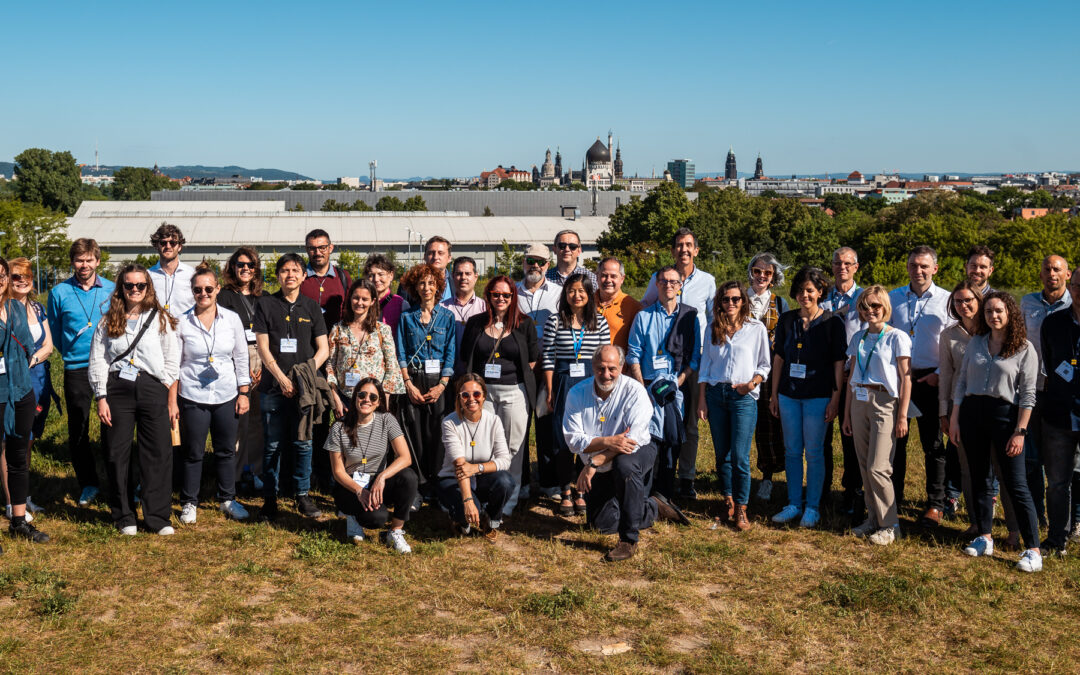The MOBILITIES project consortium met this week in Dresden, Germany, to hold its second General Assembly and review the team’s first steps since its launch earlier this year.
One of the main topics of the meeting has been the study of the situation of the Leading and Replicating Cities, and the strategic planning for the next period. The meeting also included a series of workshops and representations by city partners, as well as a visit to Dresden’s demonstration site, the Ostragehege. The consortium was able to learn about the planned pilot activities on site, aimed at accelerating the development and involvement of clean and efficient mobility solutions.
The Assembly was held simultaneously with the #IEEE6GS summit, which brought together startups and innovative technology projects. This convergence of knowledge promised to enrich discussions and foster opportunities for collaboration.
During this event, a policy dialogue also took place together with another Horizon 2020 framework project called Neutralpath, in which CARTIF team is also involved. Representatives from the cities of Vantaa and Espoo (Finland), Dresden (Germany) and Madrid (Spain), represented examples from their respective cities on the solutions they have implemented, and plan to implement, in the coming years to reduce carbon emissions and support the ecological transition.
With a firm commitment to achieving climate-neutral cities in the European Union, the MOBILITIES for EU project remains at the forefront of driving sustainable urban mobility activities. The project, which held its kick-off meeting last January in Madrid, emerges to significantly contribute to the transformation of cities in terms of connected autonomous mobility and climate neutrality.
